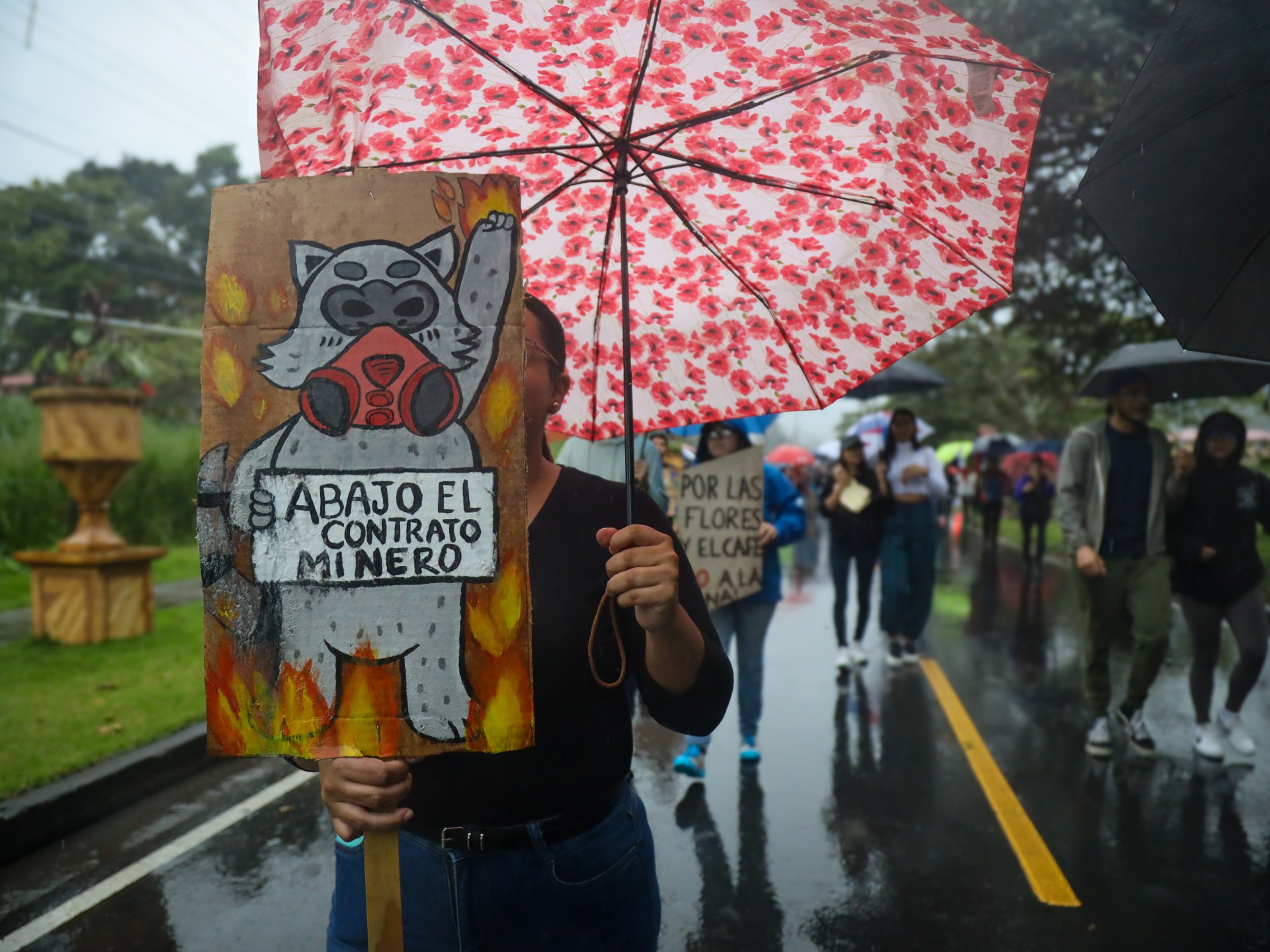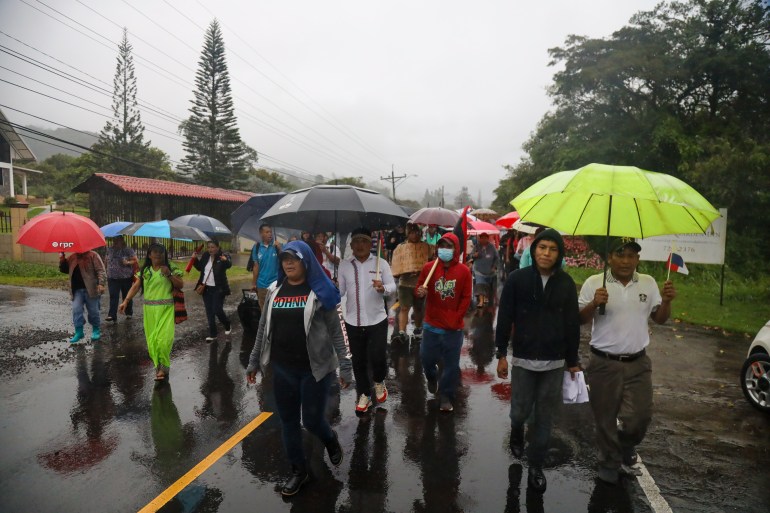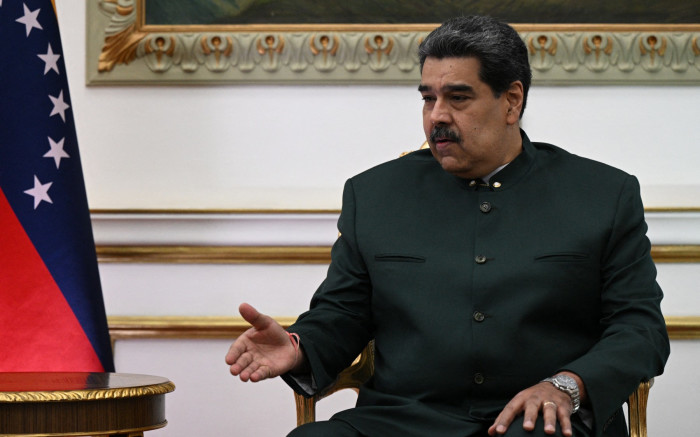
Protests against the largest open-cast copper mine in Central America have been raging in Panama for more than a month. Road closures have led to gas and propane shortages. Many supermarket shelves are empty. Restaurants and hotels were empty.
But on Tuesday, protesters in Panama got the news they had been waiting for.
The country’s Supreme Court ruled that Panama’s new mining contract with Canadian company First Quantum was unconstitutional.
Protesters danced in the streets in front of the Supreme Court. They waved the red, white and blue Panamanian flag and sang the national anthem.
The ruling, a blow to investors and the country’s long-term creditworthiness, is for now a source of relief for Panama, which has been rocked by the country’s largest protest movement in decades.
News of the Supreme Court’s ruling came early on Tuesday – the day of the anniversary of Panama’s independence from Spain.
“Today we celebrate two independences,” 58-year-old restaurant worker Nestor Gonzalez told Al Jazeera. “Independence from Spain and independence from the mine. And no one will forget it.”
People came to celebrate. The bistro where Gonzalez works in the western province of Chiriqui was already full of customers at lunchtime – something the restaurant hadn’t seen since mid-October.
“We are so happy,” said Gonzalez, “because we were trapped in Chiriqui province for 35 days, with no gas, no propane and little food.” I had to look for firewood in the mountains because I had no propane for cooking . So thank God that the judges took a stand and issued this ruling.”
The mine, known as Cobre Panama, has been operating since 2019 and produces 300,000 tons of copper annually. It represents about five percent of the country’s gross domestic product (GDP) and 75 percent of Panamanian exports. The mining sector contributes around seven percent of Panama’s GDP, with Cobre Panama being the country’s main mine.
But protesters said Cobre Panama was a disaster for the country’s environment and a handout to a foreign company.
“I protest because they are stealing our land. They just hand it over,” said Ramon Rodriguez, a protester in a yellow raincoat who took part in a march in late October following protests against the mine. “The sovereignty of our country is in danger. Because of that, I’m here.”
This issue of sovereignty is particularly important to Panamanians, who fought throughout the 20th century to liberate the country from the United States-controlled Panama Canal Zone. This was an area almost half the size of the U.S. state of Rhode Island, stretching right through the middle of Panama.
“This contract is bad. It should never have been done. Never. So you have to fight,” said Miriam Caballero, a middle-aged woman in a gray sweatshirt who watched the protests in October.
Impact on foreign investment
This was not the first contract with the mine. In 2021, the Supreme Court declared the previous treaty unconstitutional because it did not sufficiently promote the common good. The government of President Laurentino Cortizo has renegotiated the contract with improved benefits for the state. This was fast-tracked through Congress on October 20th. Cortizo signed it into law a few hours later.
The president and his cabinet had welcomed the new contract, saying it would bring unexpected profits to the state.
“The contract guarantees a minimum payment to the state of $375 million per year for the next 20 years,” Trade Minister Federico Alfaro told Panamanian news agency Telemetro. “If you compare this to what the state received previously, which was $35 million per year, it is a significant improvement over the past.”
Cortizo promised to use the funds to shore up the country’s social security fund and increase pensions for more than 120,000 retirees.
After protests spiraled out of control, he announced a moratorium on all new mining projects and promised to hold a referendum on the fate of Cobre Panama. The idea was not well received. The demonstrators remained unmoved.
Members of the Panamanian business sector have accused Cortizo of mishandling the crisis and refusing to use a heavy hand to end the roadblocks and stop the protests. Last week they said it cost the country $1.7 billion.
Cortizo, whose approval rating had already fallen to 24 percent in June, responded to this week’s court ruling by saying: “All Panamanians must respect and abide by the decisions of the Supreme Court.”
Analysts expect the protests and ruling to have an impact on foreign companies seeking to do business in Panama.
“I believe this court ruling sends a very clear message to foreign investors,” Jorge Cuellar, assistant professor of Latin American studies at Dartmouth College, told Al Jazeera. “If this is the kind of foreign investment that politicians and capitalists are innovating in 2023, then Panamanians want no part of it.”
But this attitude will likely come at a price.
After more than a week of protests, the rating agency Moody’s downgraded Panama’s debt to its lowest investment grade rating in early November. Financial problems were cited and political unrest was pointed out. Analysts at JP Morgan said at the time that revoking the mining contract would significantly increase Panama’s risk of losing its investment-grade rating.
First Quantum also has a lot to lose. Its shares have lost 60 percent of their value in the last month and a half. More than 40 percent of the company’s production comes from the Panamanian mine.
Over the weekend, the Panama company said it planned to initiate arbitration proceedings against the country under the free trade agreement between the two countries.
However, in a statement released after the ruling, First Quantum said: “The company would like to express that it respects Panamanian laws and will review the contents of the ruling to understand its basis.”

“Jobs at risk”
The announcement is also a blow for the mine’s employees. The mine employs around 6,600 people – 86 percent of whom are Panamanians – and offers a total of 40,000 direct and indirect jobs.
The Panamanian miners’ union Utramipa announced that its members would march in several cities on Wednesday against the Supreme Court’s decision and in defense of their jobs.
“We will not allow them to jeopardize the jobs that help us support our families,” the union said in a statement.
Last week, Utramipa member Michael Camacho condemned the protests in the Panama En Directo news agency. Operations at the mine were suspended last week due to protests at the port and on the highway in and out of the facility.
“What about us, the workers? We are Panamanians too. We have the right to go home and return to our jobs,” Camacho said. “But at this moment we are being held hostage by the protesters, the anti-socials, the terrorists – as we should call them – and the people who are preventing us from passing.”
For the majority of Panamanians, the Supreme Court ruling is a welcome sign that the country is on the path to normality.
In some provinces, protesters have vowed to stay on the streets until the Supreme Court’s ruling is officially released – which usually takes a few days – or until the mine closes permanently. But many roadblocks have now been removed, highways that were empty for weeks have been reopened and the gas stations are back in operation.
“We are in a new phase,” Harry Brown Arauz, the director of the International Center for Social and Political Studies in Panama, told Al Jazeera. “The protests, as we have seen so far, should be lifted. And the government has said it will begin an orderly closure of the mine. This can create trust among the population that has been lost.”
Arauz says the protest movement and the verdict are a strong sign of the strength of democracy in Panama, which the country regained just over 30 years ago.
“This is a really important moment,” he says. “It marks a before and after for Panamanian democracy.”






Recent Comments